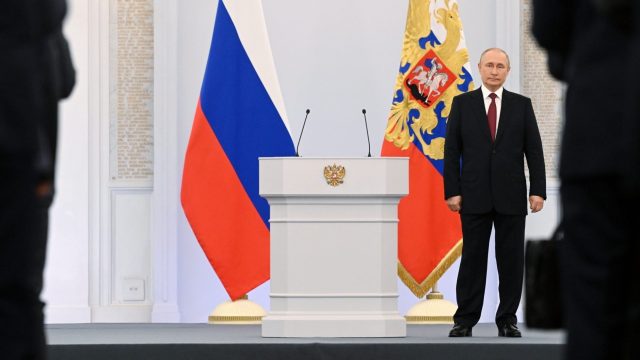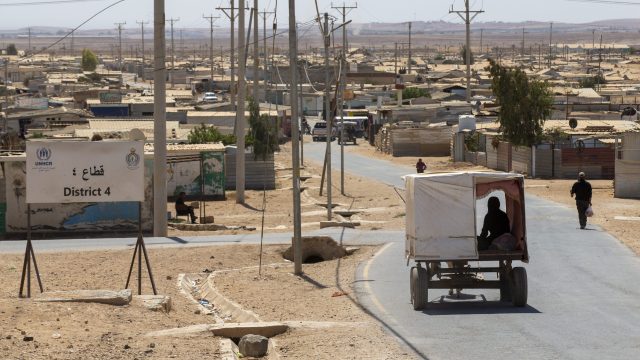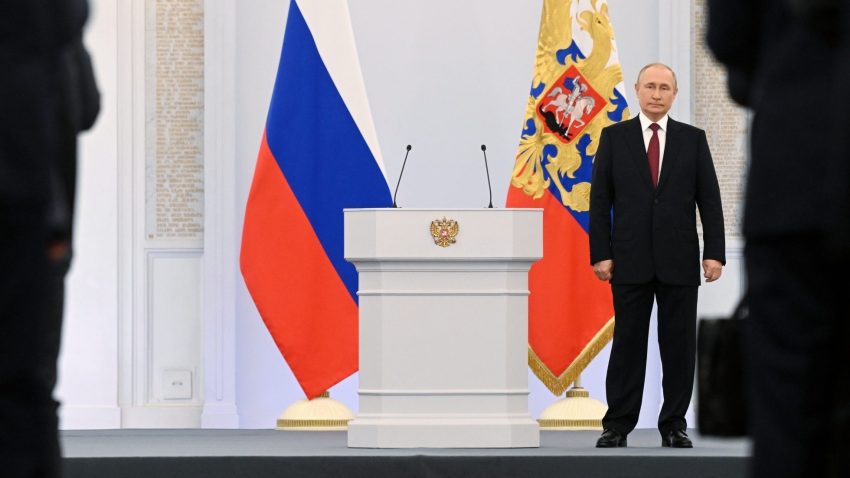Hello, everyone. This is an abridged version of the Daily Review, as our editorial staff takes a well-deserved vacation.
Today at WPR, we’re covering the uncertainty facing Syrian refugees in Jordan and whether Russian society can avoid a point of no return.
Now, here’s our take on today’s top story:
Gabon coup: Gabon’s military said on Wednesday that they had seized power and put the country’s longtime ruler, Ali Bongo, under house arrest. The apparent coup would be the eighth in West and Central Africa since 2020. (Reuters)
Our Take: The coup is only the latest evidence that France’s neocolonial network of influence in Africa has all but disintegrated. As Alexander Clarkson wrote earlier this month in WPR, flawed strategic choices by European former colonial powers in West Africa and the Sahel over decades have contributed to instability there.
“The remnants of neocolonial networks that sustained European influence long after formal imperial rule ended in African states are close to a breaking point,” Clarkson wrote. “The durability of links between French military and corporate interests and well-connected local elites enabled France to act as primary security guarantor in much of Africa until as recently as several years ago. But that generated complacency within EU institutions over the stability of the system widely known as ‘Francafrique.'”
The difference between the apparent coup in Gabon and recent ones in Mali and Burkina Faso, however, is that the latter countries have struggled to contain security threats from jihadist insurgents. That is not the case in Gabon. Instead, the coup there seems the result of frustration with a political family that has been in power for more than a half century. “In many ways, Gabon’s electoral democracy is a thin veneer for a kinship-based political order at the center of which sits the Bongo family,” Sophie Neiman wrote in WPR in March. “Over the course of more than five decades now, the Bongo family has entrenched itself by marginalizing perceived and real threats to its authority.”
In that sense, Gabon’s situation may have more in common with a recent coup in Niger than meets the eye. Many Western commentators characterized the Niger coup as a clear setback for democracy in the region. “This is a reductive conclusion, however, as it is based on a familiar conflation of the form of democratic governance in African states with its substance,” Chris Olaoluwa Ògúnmọ́dẹdé wrote in WPR earlier this month. “Security, economic progress and social development are necessary to sustain public support for any system of government, including democracy.”


After Prigozhin’s Death, Russia Is Nearing a Point of No Return
In today’s column, Alexander Clarkson examines surprising parallels between the current situation in Russia and the slow disintegration of the state and society under Mobutu Sese Seko in Zaire—now known as the Democratic Republic of Congo—in the 1980s and ’90s.
Congo’s crises in those years indicate how the process of state decay can drag out for decades. Even when state institutions have become completely hollowed out and corrupted, an autocrat can still cling to power if there is no clear successor who can continue to protect the interests of elite factions whose fate is intertwined with an authoritarian status quo. The situation in Russia, Clarkson writes, strongly echoes the factors that kept Mobutu in power long after his state’s failure had become fully visible.
Syrian Refugees in Jordan Are Facing Increasing Uncertainty
Also today, Kelly Petillo of the European Council on Foreign Relations looks at the uncertainty facing Syrian refugees in Jordan. Jordan is considered to be a Syrian refugee “success story” due to its record of hospitality. However, Syrians who reside in the country are increasingly concerned about changes in the government’s posture toward them. They fear that their host government may be running out of patience and they may soon be pressured to leave.

That’s all for today’s Daily Review. We’ll be back tomorrow and Friday with similarly abridged versions of this email, and the full Daily Review will return Monday.
—Hampton Stephens
More From WPR
- Charli Carpenter on Afghan refugees in limbo two years after the U.S. withdrawal from that country.
- Colin P. Clarke and Michael Shurkin on the U.S. dilemma in the Sahel.
- James Bosworth on Guatemala..

